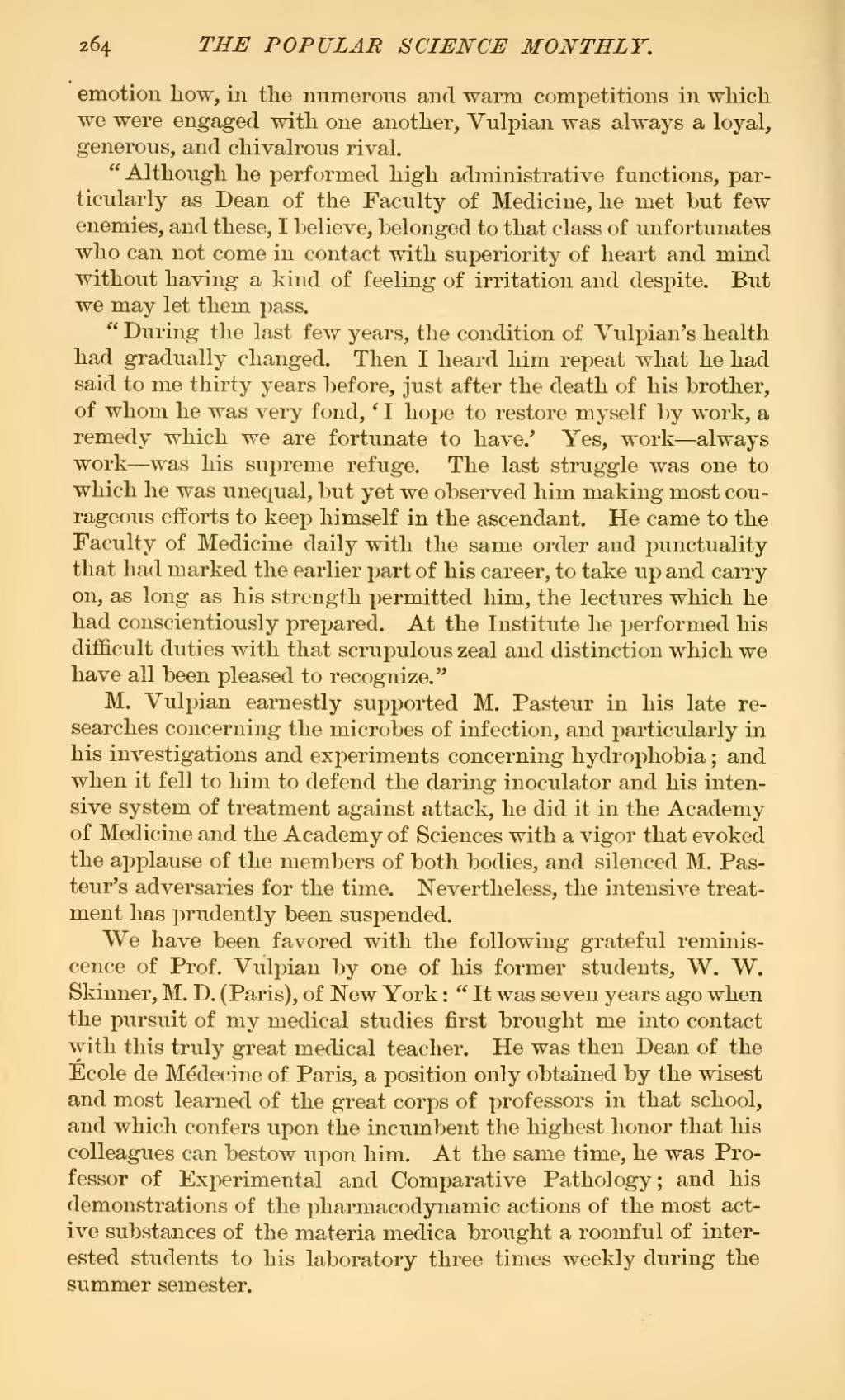emotion how, in the numerous and warm competitions in which, we were engaged with one another, Vulpian was always a loyal, generous, and chivalrous rival.
"Although he performed high administrative functions, particularly as Dean of the Faculty of Medicine, he met but few enemies, and these, I helieve, belonged to that class of unfortunates who can not come in contact with superiority of heart and mind without having a kind of feeling of irritation and despite. But we may let them pass.
"During the last few years, the condition of Vulpian's health had gradually changed. Then I heard him repeat what he had said to me thirty years before, just after the death of his brother, of whom he was very fond, 'I hope to restore myself by work, a remedy which we are fortunate to have.' Yes, work—always work—was his supreme refuge. The last struggle was one to which he was unequal, but yet we observed him making most courageous efforts to keep himself in the ascendant. He came to the Faculty of Medicine daily with the same order and punctuality that had marked the earlier part of his career, to take up and carry on, as long as his strength permitted him, the lectures which he had conscientiously prepared. At the Institute he performed his difficult duties with that scrupulous zeal and distinction which we have all been pleased to recognize."
M. Vulpian earnestly supported M. Pasteur in his late researches concerning the microbes of infection, and particularly in his investigations and experiments concerning hydrophobia; and when it fell to him to defend the daring inoculator and his intensive system of treatment against attack, he did it in the Academy of Medicine and the Academy of Sciences with a vigor that evoked the applause of the members of both bodies, and silenced M. Pasteur's adversaries for the time. Nevertheless, the intensive treatment has prudently been suspended.
We have been favored with the following grateful reminiscence of Prof. Vulpian by one of his former students, W. W. Skinner, M. D. (Paris), of New York: "It was seven years ago when the pursuit of my medical studies first brought me into contact with this truly great medical teacher. He was then Dean of the École de Médecine of Paris, a position only obtained by the wisest and most learned of the great corps of professors in that school, and which confers upon the incumbent the highest honor that his colleagues can bestow upon him. At the same time, he was Professor of Experimental and Comparative Pathology; and his demonstrations of the pharmacodynamic actions of the most active substances of the materia medica brought a roomful of interested students to his laboratory three times weekly during the summer semester.

